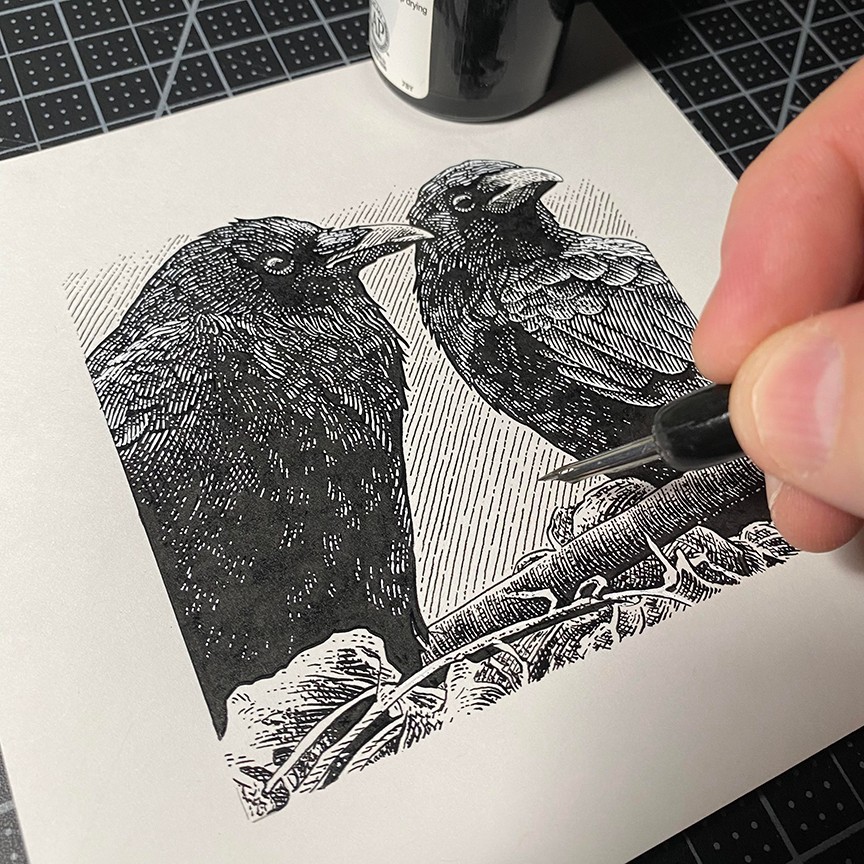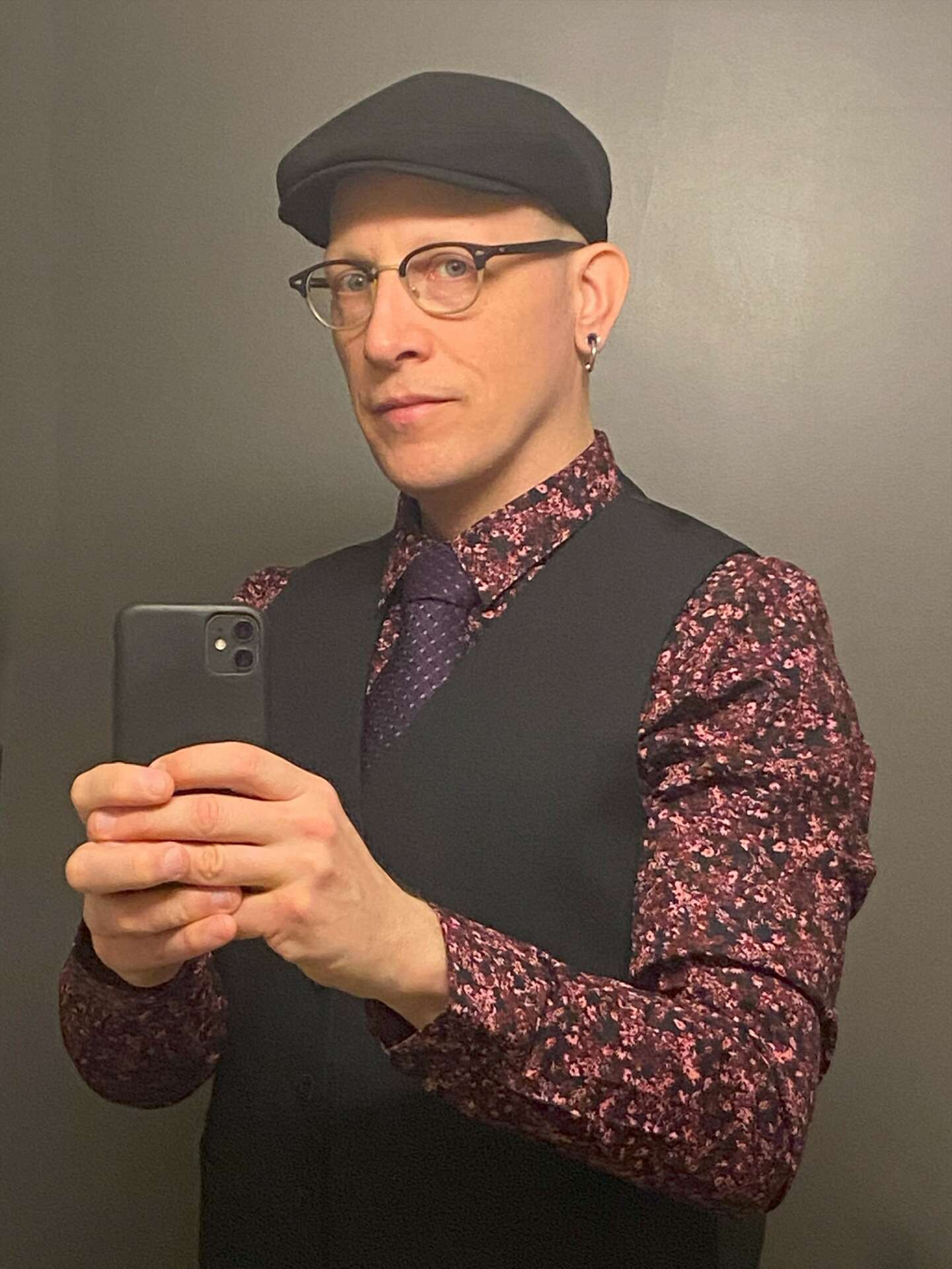We caught up with the brilliant and insightful Robert Tritthardt a few weeks ago and have shared our conversation below.
Robert, thanks for taking the time to share your stories with us today Did you always know you wanted to pursue a creative or artistic career? When did you first know?
I was in grade school when I first saw black and white illustrations of monsters and mythological beasts in Dungeons & Dragons books. I fell in love with the line work of etchings and woodcuts that I saw in old books. I would spend hours looking at this art in detail to see how the artists turned an area of white into black with all the shades of grey in between. I wanted to make pieces of art just like what I saw. I didn’t necessarily think that I could turn it into a career because all of my attempts were so clunky and awkward. It wasn’t until Community College when a professor noticed that I had a little bit of talent and suggested I look into pursuing a degree in art.


As always, we appreciate you sharing your insights and we’ve got a few more questions for you, but before we get to all of that can you take a minute to introduce yourself and give our readers some of your back background and context?
I have been drawing with traditional pen & ink on paper since college in the mid 90’s. I really enjoy the feel of ink on paper and feel especially gratified that I can fill up portfolios with original work as opposed to having all of my work be digital. To me, each rectangle paper that I spent hours working on is a little piece of me. The more work I make, the more I exist.
After college I spent several years writing and drawing two different comic strip series which were somewhat popular in the underground Goth scene. I enjoyed illustrating my life in four panels each week, but eventually I decided to shift my focus to work in role-playing game illustration. I worked on a few projects like the post-apoclyptic neo-victorian RPG Unhallowed Metropolis and the card game Yukon Salon.
A few years ago I decided to shift the focus of my art once again after participating in Inktober where I drew a series of highly detailed animal skulls. I felt better about my work when it was smaller and I could get more pieces done in a shorter amount of time. With the encouragement of my employers at the picture framing shop, The Art Study, I began making higher quality prints of my work and got to see how that looked after being professionally framed. This gave me the idea to combine my day job career and my art making. Now I collect and upcycle unique picture frames from vintage shops and dead people so that I can present my work in a “ready to hang” format at art expos and markets around Seattle.
I am currently working on a series of crows and ravens which has really taken off. I have been making high quality one-off digital prints for the antique frames that I find and restore. You can my work at various shops around the PNW and my webstore is in the works.


How can we best help foster a strong, supportive environment for artists and creatives?
The best thing society can do to help support artists is to not make it so hard to afford to live. Having to work a full-time job hovering at or just above minimum wage for most of one’s life can really crush an artistic spirit. Nobody wants to spend countless hours making other people money just to come home and not have the energy or drive to pick up the paintbrush. Screw the “starving artist” stereotype. We need affordable housing, universal health care, and a lower cost to living.


Learning and unlearning are both critical parts of growth – can you share a story of a time when you had to unlearn a lesson?
It’s not necessarily a lesson, but I’ve always struggled with self-confidence and mental health. I have cPTSD (complex post-traumatic stress disorder) which is a result of un-diagnosed autism spectrum disorder. I never felt like I (and my art) was good enough. All of my teachers have said that you have to go through trials and errors and make tons of mistakes in order to learn anything and get better. Having no self-confidence made me want to give up all the time, and I did. I should be so much better at this at my age than I am now. Yet, I had something inside of me saying that I needed to keep making art. I needed to keep drawing. I needed to stop worrying about what other people were going to think about me or my work.
Seeing so many people make content on social media about autism made me realize that that’s what was “wrong” with me. I went through a lengthy process to receive my diagnosis 18 months ago and my life has been so much better because of it. Knowing why I do the things I do and seeing other people struggle with the same problems really turned things around for me. I feel so much better about my life and who I am. I still need to work on my self-confidence every day, but getting over that obstacle was one of the toughest things I’ve ever had to do. My art has improved since then and so has my attitude toward it.


Contact Info:
- Website: http://www.roberttritthardt.com/
- Instagram: https://www.instagram.com/roberttritthardt/
Image Credits
Robert Tritthardt


